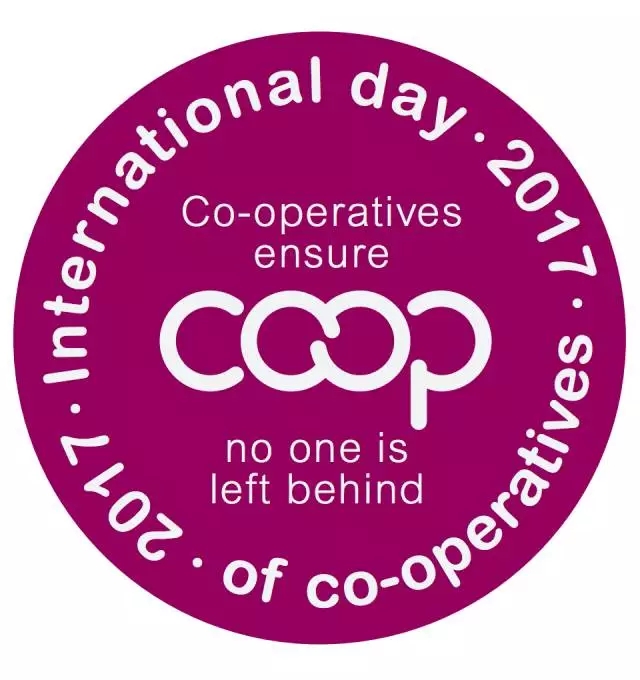
在全球收入不平衡加剧之际,应记住解决这种不平衡的办法是存在的,而合作社模式就是其中最重要的解决方案。合作社已得到国际共识的定义、原则、和价值观使其区别于所有其它的企业组织。合作社成员资格对所有人都是平等开放的,只要他认可入社的条件。
这种开放的成员制有助于创造财富,减少贫困。这源自于合作社成员经济参与原则的设定:“成员公平奉献并民主控制其合作社资本”。因为合作社以人为本,而非以资本为主,不会维持或促进资本的集中,而是以更公平的方式分配财富。
开放的通道使合作社延伸到所有商业领域:储蓄和信用贷款、农业和渔业、货物及服务购买、医疗、房产、保险、手工艺和工业服务。哪里的资本市场无法满足人们的需求,哪里的人们就会选择自我组织起来。
除了合作社本身强调公平的组织结构之外,通过原则七“关心社区”,合作社还能够促进外部平等。合作社以社区为基础,致力于从环境、社会和经济等方面促进社区的可持续发展。这一贡献从合作社支持社区活动、调动资源以促进地方经济发展以及在决策制定时充分考虑其社区影响等方面已在全球得到广泛印证。
除立足本地社区之外,合作社同样渴望将其经济和社会模式的效益带给全世界人民。全球化应当通过一系列价值观实现,比如合作社运动的价值观;否则,如我们已经看到的那样,全球化将导致更多地不平衡和不可持续性发展。
合作社并非通过搞慈善、而是通过有组织地自我帮助来成就其价值。这使合作社得以通过以社区为基础的联合组织为满足成员需求提供多元化服务来实现发展壮大。全球合作社监测报告显示,排名前300家的大型合作社实现了超过2.5万亿美元的年营业额。超过2.5亿人通过合作社找到了生计。这是一种影响较大的财富创造和分配模式。关于合作社规模化的问题在很久以前就已经有了肯定回答。
这种影响力是联合国教科文组织(UNESCO)最近将合作社列入其人类非物质文化遗产名录的原因之一。2003年,UNESCO发布名录,承认人类阅历不能光从有形的地点和历史遗迹来定义,同时需要从实践和传统来定义。成员国必须将这一点作为提名规则,德国提出认可合作社,指出合作社旨在“努力实现更加公平的全球化发展进程”。
我们应该记住,收入不平衡并不是困扰全球人类的唯一问题。妇女和少数群体通常不允许参与对改善他们生活水平来说至关重要的活动。合作社原则中规定的不歧视是多维度的,包括性别、社会阶层、种族、政治和宗教,确保不落下一个人。
值此国际合作社日之际,国际合作社联盟呼吁全球的合作社深思日渐加剧的不平等造成的疾苦,重新提出保证所有社区的平等并庆祝合作社为建设更美好的世界所做出的贡献。“2030合作社”平台(www.coopsfor2030.coop)让合作社能够为实现可持续发展目标积极努力,国际合作社联盟也鼓励所有合作社为实现这一目标而努力。
At a time when income inequality is rising around the world, it is good to remember that solutions for inequality exist. The co-operative model is foremost among these. Its internationally agreed definition, principles and values set it apart from all other forms ofen trepreneurial organisations. Those principles state that membership in aco-operative is open without discrimination to all people who accept the requirements of membership.
That open membership affords access to wealth creation and poverty elimination. This results from the co-operative principle on member economic participation: 'Members contribute equitably to,and democratically control, the capital of their co-operative'. Because co-operatives are people-centred, not capital-centred, they do not perpetuate nor accelerate capital concentration and they distribute wealth in a more fairway.
The open access that co-operatives provide extends across all business sectors -- savings and credit facilities, farming and fisheries, purchase of goods and services, health care, housing, insurance,provision of artisinal and industrial services -- wherever the capital-based market fails to look after the needs of the people and they choose to organise themselves.
Beyond the non-discriminatory structure of the co-operative itself, co-operatives also foster external equality, through principle seven, 'Concern for Community'. As they are community-based, they are committed to the sustainable development of their communities -environmentally, socially and economically. This commitment evidences itself across the world in co-operative support for community activities, in local sourcing of supplies to benefit the local economy, and in decision-making that considers the impact on their communities.
Despite their local community focus,co-operatives also aspire to bring the benefits of their economic and social model to all people in the world. Globalization should be done through a set of values such as those of the co-operative movement; otherwise, it creates morein equality and excesses that render it unsustainable, as we have seen.
Co-operatives achieve results not ascharities, but as entrepreneurial self-help organisations. This has allowed them to grow to scale, through community-based federated structures and by offering increasingly varied services in response to member needs. The World Co-operative Monitor reports that the 300 largest co-operatives alone account for over USD 2.5 trillion annual turnover. Over 250 million people organise their live lihood through a co-operative. This is wealth creation and distribution at a high impact level. The question of scalability of co-operatives was resoundingly answered in the affirmative long ago.
This impact is one of the reasons that UNESCO (the United Nations Educational, Scientific and Cultural Organisation)recently added co-operatives to its list of the intangible cultural heritage of humanity. UNESCO established the list in 2003 to acknowledge that the human experience is not defined only by tangible places and monuments, but equally by practices and traditions. A member-state must make such a nomination, and Germany made the case for co-operative recognition, noting that co-operatives'strive for a more just development of globalization processes'.
It is important to note that it is not only income inequality that plagues the world. Women in particular and minority groups often find themselves denied access to important activities essential to improving their living situation. The nondiscrimination defined in the co-operative principles is multi-dimensional: gender, social, racial, politicaland religious, ensuring that no-one is left behind.
On this International Day of Co-operatives,the International Co-operative Alliance calls on co-operatives across the world to reflect on the misery caused by rising inequality, to recommit to ensuring equality across their communities, and to celebrate the co-operative contribution to making the world a better place. The platform ‘Coops for 2030’ (www.coopsfor2030.coop)offers the possibility for co-operatives to pledge initiatives towards theimplementation of the Sustainable Development Goals and the International Co-operative Alliance encourages all co-operatives to do so.
-
“中国农村改革40年:农民合作社发展的理论与实践”学术研讨会暨第六届“中国合作经济中青年学者工作坊”在杭州顺利召开08-23
-
中心主任徐旭初教授带队赴山东调研07-27
-
值得推荐阅读的农民合作社研究论著(2007-2016)07-23
-
2017年值得推荐阅读的农民合作社研究论著07-23
-
“中国农村改革40年:农民合作社发展的理论与实践”学术研讨会暨第六届“中国合作经济中青年学者工作坊”会议通知【更新】04-03
-
中国农民合作组织研究中心主任徐旭初教授带队赴晋调研08-06
-
第五届“中国合作社经济中青年学者工作坊”在山东泰安顺利召开07-27
-
第五届“中国合作经济中青年学者工作坊”会议通知07-08
-
中心主办“合作社法律修订专题研讨会”在陕西顺利召开11-30
-
中心主办“合作社法律修订专题研讨会”在陕西顺利召开11-30
-
2015年最值得推荐阅读的中国农民合作社研究论著07-27
-
徐旭初教授为苏州市农民专业合作社辅导员培训班授课07-08
-
黄祖辉教授等撰写的决策报告获中央领导重要批示07-02
-
黄祖辉教授做客宿州大讲堂 阐述创新型农业现代化先行区发展路径06-20
-
浙江大学中国农民合作组织研究中心(CCFC)设立浙江分中心06-20
-
农民专业合作社申办流程及相关材料08-05
-
徐旭初:烟农专业合作社发展的若干问题02-01
-
马文杰:农民合作社解析12-09
-
沈卫彬:农业合作社生产标准控制与质量分级12-17
-
国际合作社联盟:“合作社十年(2011-2020)蓝图”计划草案[英文]11-05
-
美国农业部:合作社是什么?以及成员、理事、经理和雇员的角色10-12
-
Baqui Khalily: Capacity Building for Cooperatives08-22
-
农业综合开发办公室:农业综合开发产业化经营项目可行性研究报告编写参考大纲08-09
-
王景新:中国乡村新型合作经济组织——趋势、问题与政策07-28
-
范金旺:农民专业合作社经营管理07-20
-
Gall & Schroder: Agricultural Producer Cooperatives as Strategic Alliances07-12
-
霍学喜:农民专业合作社功能及服务模式06-22
-
农业部:首批6663家农民专业合作社示范社联系方式06-12
-
王征兵:农民专业合作社发展思路与对策06-03



